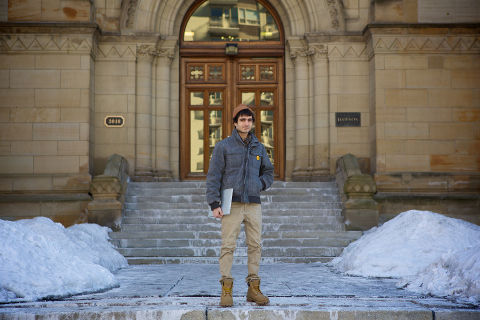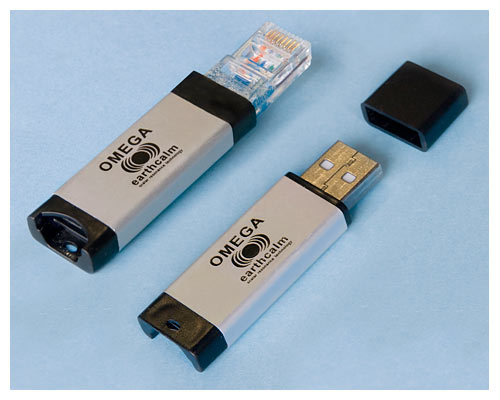I’m sad to hear Terry Pratchett has died. I would write “it is not fair” in all caps, but that might get misinterpreted.
I had the pleasure of meeting Terry Pratchett at a book signing in The Netherlands when “The Last Continent” was released. I was getting the book for an Australian friend of mine whom I was about to visit in Australia. She had told me she refused to read Pratchett because all her friends read his books and he was just “too mainstream”. I told Terry this at the book signing when handing him The Last Continent. He thought for a moment and wrote “Carol, Don’t read this one either”.
I greatly enjoyed his books, but also at the time in the late nineties, his postings on Usenet in alt.fan.pratchett. He was the first celebrity that I saw that talked to his fans without a publisher in between. You got to talk to the real Terry. Of course, a lot of talk on alt.fan.pratchett was about whether or not that was really Terry Pratchett. You could tell from the writing though. It was him.
Below are some of the quotes I saved from alt.fan.pratchett, hopefully someone can grab the entire usenet archive from Google before it is lost forever……
on Cuba
I would like to confess that I know my books have been read by a Cuban. At least, I think he is Cuban. Certainly he’s got Cuban relatives. Or knows someone from Cuba. Or knows someone who smokes cigars, at least.
I realise this may put the upcoming US tour in jeopardy, and throw myself on the mercy of the courts.
On the use of IMHO
Oh, as a naturally democratic man I use the simple and common net usuage; it means ‘In my pompous and unwarranted opinion as a person who, despite an apparent intelligence level somewhere between that of a clam and a line-dancer, won’t hesitate to pronounce definitively on any damn subject under the sun.’ Of course, I might have got it wrong. It was just based on long observation:-)
On a hedge
You’ve got to remember that no hedge is ‘natural’; the whole point of cutting and laying the traditional quickthorn is to make a living barrier that even a sex-crazed ram isn’t going to be able to push through.
On Tomb Raider
> Same here, maybe I’d like her more if she didn’t look like she was made of plastic.
Never mind about Lara. The Tomb Raider games are the only games where I’ve shot someone because they were getting in the way of the scenery. Who will forget the brown trousers moment with the T-Rex in TR1? And in TR2 I spent some time driving the snomobile and the boat just for the sheer heck of it…
On Doom
“Over the centuries, mankind has tried many ways of combating the forces of evil…prayer, fasting, good works and so on. Up until Doom, no one seemed to have thought about the double-barrel shotgun. Eat leaden death, demon…
On Doom at a con in NZ
At a con in NZ they had a number of machines hooked up and four kids were playing Doom in co-operative mode with the superb Aliens-TC patch, which was incredible well done. They were advancing through the nest, and I explained to them that the only way they’d survive was with some sense of military discipline. Hah, they obviously thought, was does *he* know?
Whereupon an alien stepped out of the corridor wall behind them.
Whereupon they all turned around and fired like Hudson on speed…
Whereupon the guy who had been at the *front* of the line shot all three of his colleages who had been in single file behind him…
…whereupon the alien ate him.
On receiving emails from fans
But in reality people often aren’t writing because they want that information. They want to write an email to a favourite author, and they don’t want to sound too fanboy, so asking a real question gives them, they feel, a reason. This is fine. It’s just that there’s so many :-)
About people posting ideas for DiscWorld in alt.fan.pratchett
You tell *me* what to do, folks. My view is that a) I’m not intending to nick anyone’s suggestions b) I’m not intending to quit reading afp c) if there are ever problems, I can afford really expensive lawyers:-)
On vampire ideas
> I am talking about the carefree use of informal language such as “nicked”,
> “stolen”, even “plagiarised”, and of course the ever popular “it is clearly
> obvious that…”, when referring to things which are, in the end, usually
> entirely unconfirmed references or resonances we *think* we may have
> spotted in PTerry’s work.
A sort of moderating comment…(but best to add some spoiler space)
Probably no other fictional monster has been so written up, filmed and played as The Vampire. I read my way through a shelf of stuff while writing CJ and *of course* there are scattered through it references to the general vampire mythos — as I’ve said elsewhere, there’s little in there about vampires that I had to make up. Vampires didn’t begin and end with Dracula. There were even high-class, Lestat-type vampires in 19th Century fiction. There are *lots* of references in CJ to ‘Dracula’, both the original book and the various influential movies that have been made of it, because they’ve largely defined our image of the vampire (which, before ‘Dracula’, was quite different). And it wouldn’t be DW if I couldn’t take the pi– poke some fun at the Anne Rice wannabes who think vampires are so cool…
Of course, everyone in Transylvania — oops, Uberwald — has a servant called Igor. It’s practically compulsory. Does Igor show Count Duckula a picture gallery anywhere in the series? I don’t know, and I don’t care much — because I can recall ‘pictures of ancestors’ as minor background in vampire movies generally (sometimes the eyes move, and sometimes, ‘hey, did you know you look *just* like the girl who died 300 years ago and here’s her picture?’ Generally, of course, the vampire in the pictures always looks remarkably like the one doing the showing…) And I can’t quite bring myself to believe that ancient retainers grumbling that the new people aren’t a patch on the masters he used to have was invented by Cosgrove-Hall.
I can hardly object to annotations, but I did spend my youthful Satuday mornings watching endless bad (and good) vampire movies (it got so I could *recognise* that bit of road by the dark lake where, in Hammer Horror movies, the coach *always* loses a wheel) and before I wrote CJ I read of lot of historical and reference vampire stuff (as have most modern writers of fictional vampires). We all mine from the same seam. That’s why most vampire movies are remarkably similar — the only suspense is working out which *new* way of killing a vampire is going to be demonstrated this time.



